Search Result
Results for "
myocardial injury
" in MedChemExpress (MCE) Product Catalog:
1
Biochemical Assay Reagents
| Cat. No. |
Product Name |
Target |
Research Areas |
Chemical Structure |
-
- HY-136744
-
|
Ac-LEHD-cmk
|
Caspase
|
Cardiovascular Disease
|
|
Caspase-9 Inhibitor III (Ac-LEHD-cmk) is a caspase-9 inhibitor. Caspase-9 Inhibitor III exhibits protective effects on ischemia-reperfusion-induced myocardial injury .
|
-
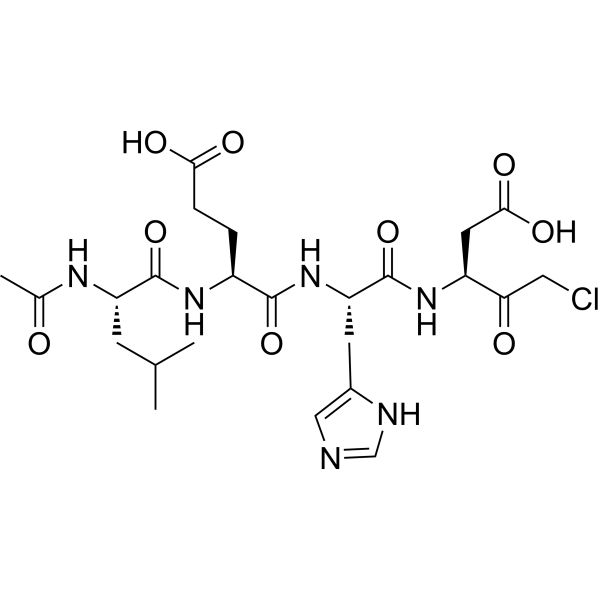
-
- HY-139397
-
|
|
MyD88
|
Cardiovascular Disease
|
|
TJ-M2010-5 is a MyD88 inhibitor that binds to the TIR domain of MyD88 to interfere with its homodimerization, and the TLR/MyD88 signal pathway . TJ-M2010-5 can be used for the research of myocardial ischemia/reperfusion injury (MIRI) .
|
-
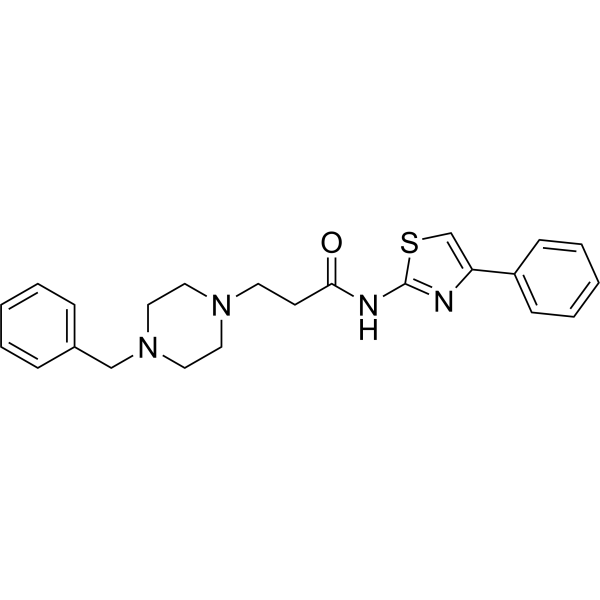
-
- HY-130272
-
|
|
Others
|
Cardiovascular Disease
|
|
Anti-MI/R injury agent 1 (compound 18), a Panaxatriol derivative, is an orally active, potent anti-myocardial ischemia/reperfusion (anti-MI/R) injury agent. Anti-MI/R injury agent 1 enhances oxygen-glucose deprivation and reperfusion (OGD/R)-induced cardiomyocyte injury cell viability. Anti-MI/R injury agent 1 can markedly reduce myocardial infarction size, decrease circulating cardiac troponin I (cTnI) leakage, and alleviate cardiac tissue damage in the rats .
|
-
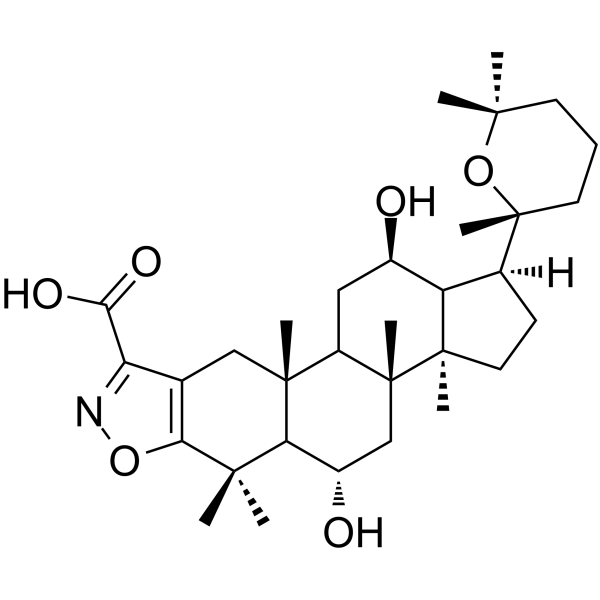
-
- HY-121726
-
|
|
mTOR
Autophagy
|
Cardiovascular Disease
|
|
3HOI-BA-01 is amTORinhibitor.3HOI-BA-01reduces infarct size and inducedautophagyin a murine myocardial ischemia/reperfusion injury model .
|
-
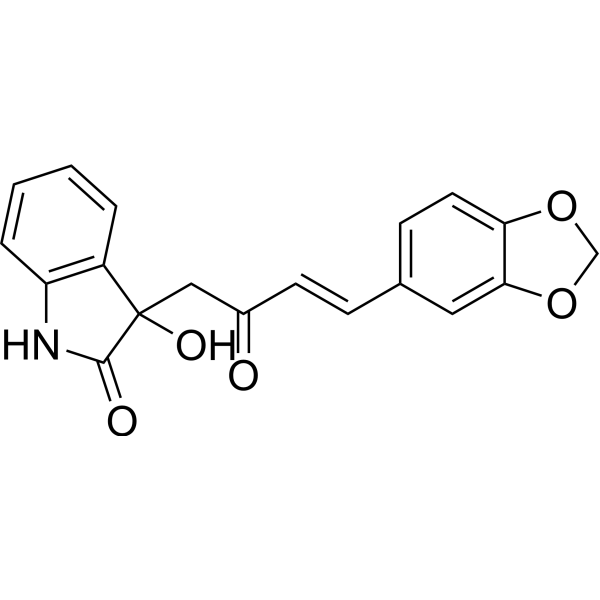
-
- HY-P99886
-
|
h5G1. 1-SC
|
Complement System
Apoptosis
|
Cardiovascular Disease
Neurological Disease
|
|
Pexelizumab (h5G1. 1-SC) is a humanized scFv monoclonal antibody directed against the C5 complement component. Pexelizumab inhibits apoptosis and leukocyte infiltration. Pexelizumab can be used for the research of cerebral IR injury and myocardial infarction .
|
-

-
- HY-121988
-
|
|
NOD-like Receptor (NLR)
|
Inflammation/Immunology
|
|
INF4E is a potent NLRP3 inflammasome inhibitor. INF4E inhibits caspase-1 and NLRP3 ATPase activities. INF4E shows protection against the IR-induced myocardial injury and dysfunction .
|
-
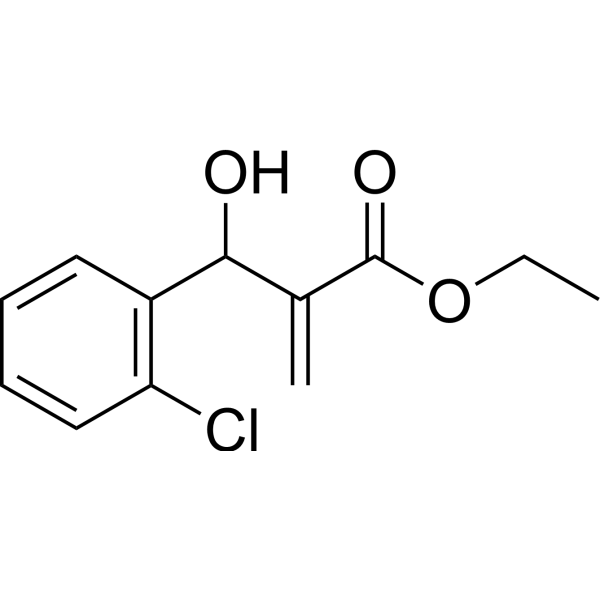
-
- HY-155475
-
|
|
mTOR
|
Cardiovascular Disease
|
|
mTORC1-IN-2 (compound H3) is a NO donor compound that alleviates vasodilation and attenuates myocardial hypoxic injury. mTORC1-IN-2 upregulates TSC2-P expression and inhibits mTORC1 expression .
|
-
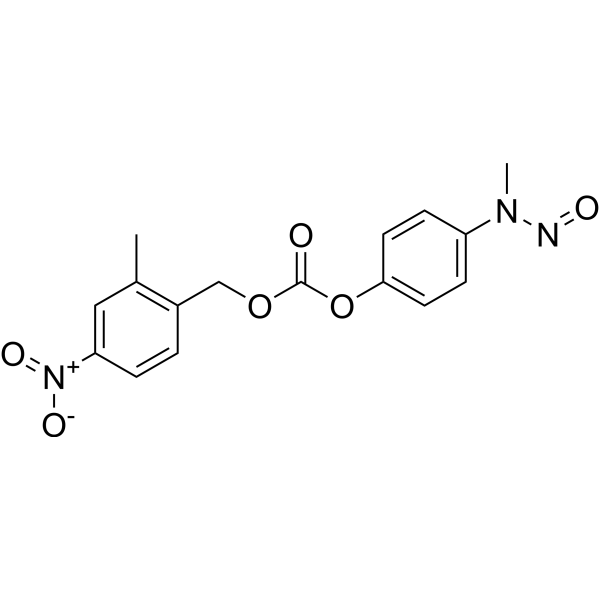
-
- HY-N6634
-
|
|
Others
|
Others
|
|
Araloside C exhibits protective effects against myocardial ischaemia/reperfusion injury .
|
-
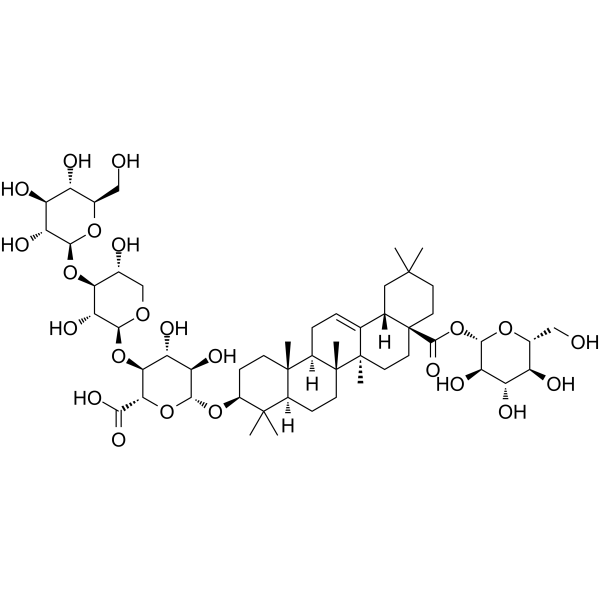
-
- HY-N2638
-
|
|
Apoptosis
|
Cardiovascular Disease
|
|
Ilexsaponin A, isolated from the root of Ilex pubescens, attenuates ischemia-reperfusion-induced myocardial injury through anti-apoptotic pathway. Ilexsaponin A can reduce myocardial infarct size, lower the serum levels of LDH, AST and CK-MB, increase cellular viability and inhibit apoptosis in hypoxia/reoxygenation cardiomyocytes .
|
-
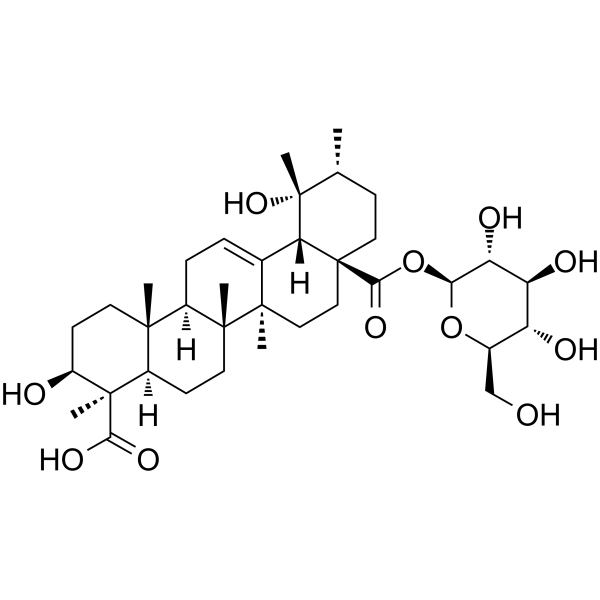
-
- HY-P0125
-
-
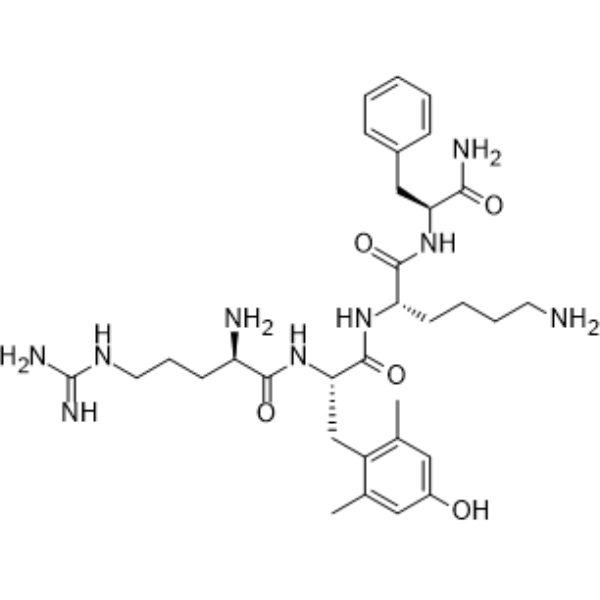
-
- HY-E70008
-
|
|
Sirtuin
|
Inflammation/Immunology
|
|
Lumbokinase capsules attenuates myocardial ischemia-reperfusion (I-R) injury through the activation of Sirt1 signaling, and thus enhances autophagic flux and reduces I-R-induced oxidative damage, inflammation and apoptosis .
|
-

-
- HY-17369
-
|
L700462 hydrochloride monohydrate; MK383 hydrochloride monohydrate
|
Integrin
|
Cardiovascular Disease
|
|
Tirofiban (L700462) hydrochloride monohydrate is a selective and reversible platelet integrin receptor (Gp IIb/IIIa) antagonist that inhibits fibrinogen binding to this receptor and has antithrombotic activity. Tirofiban hydrochloride monohydrate induces proliferation and migration on endothelial cell by inducing production of VEGF. Tirofiban hydrochloride monohydrate can significantly reduces myocardial no-reflow and ischemia-reperfusion injury by alleviating myocardial microvascular structural and endothelial dysfunction in the ischemic area .
|
-
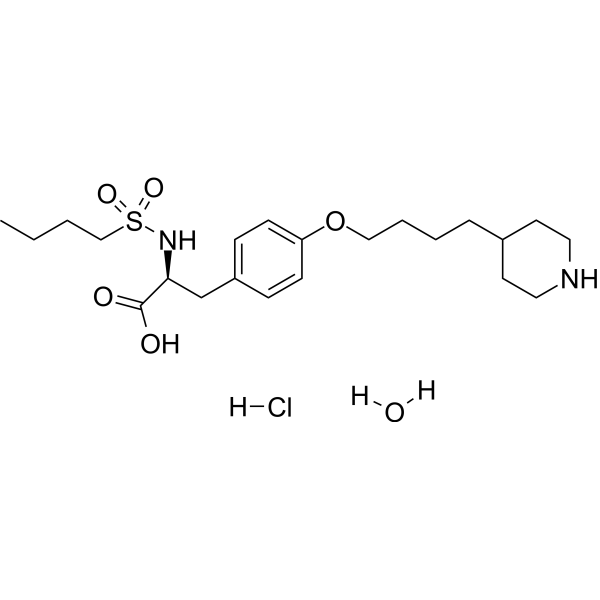
-
- HY-17369B
-
|
L700462; MK383
|
Integrin
|
Cardiovascular Disease
|
|
Tirofiban (L700462) is a selective and reversible platelet integrin receptor (Gp IIb/IIIa) antagonist that inhibits fibrinogen binding to this receptor and has antithrombotic activity. Tirofiban induces proliferation and migration on endothelial cell by inducing production of VEGF. Tirofiban can significantly reduces myocardial no-reflow and ischemia-reperfusion injury by alleviating myocardial microvascular structural and endothelial dysfunction in the ischemic area .
|
-
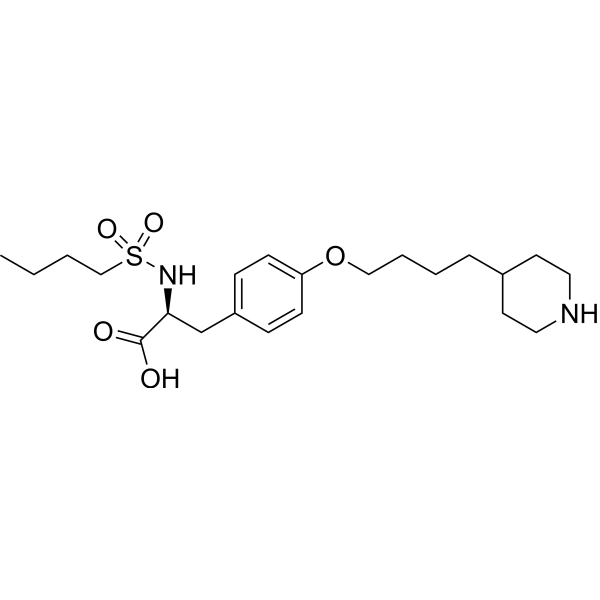
-
- HY-17369A
-
|
L700462 hydrochloride; MK383 hydrochloride
|
Integrin
|
Cardiovascular Disease
|
|
Tirofiban (L700462) hydrochloride is a selective and reversible platelet integrin receptor (Gp IIb/IIIa) antagonist that inhibits fibrinogen binding to this receptor and has antithrombotic activity. Tirofiban hydrochloride induces proliferation and migration on endothelial cell by inducing production of VEGF. Tirofiban hydrochloride can significantly reduces myocardial no-reflow and ischemia-reperfusion injury by alleviating myocardial microvascular structural and endothelial dysfunction in the ischemic area .
|
-
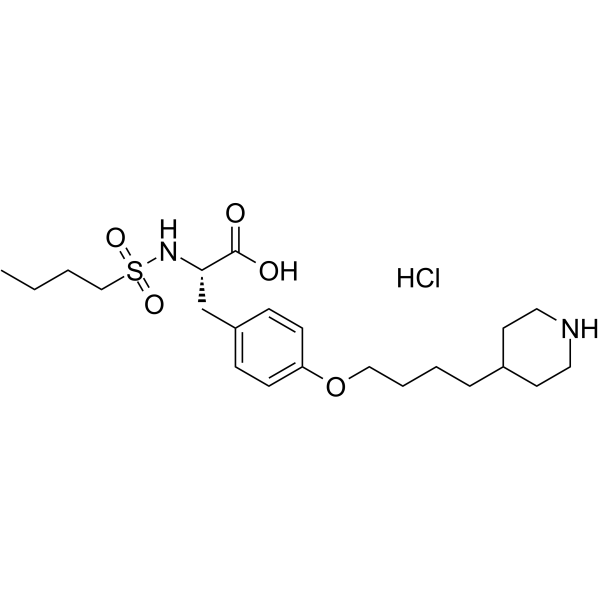
-
- HY-N2190
-
|
|
|
|
|
Hederagenin 28-O-beta-D-glucopyranosyl ester, a triterpenoid saponin isolated from Ilex cornuta, exhibits protective effects against H2O2-induced myocardial cell injury .
|
-
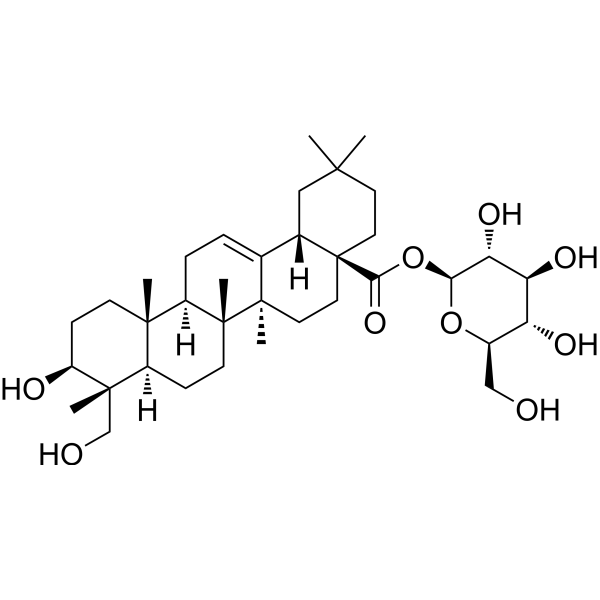
-
- HY-106262
-
|
KAI-9803; BMS-875944
|
PKC
|
Cardiovascular Disease
Inflammation/Immunology
|
|
Delcasertib (KAI-9803) is a potent and selective δ-protein kinase C (δPKC) inhibitor. Delcasertib (KAI-9803) could ameliorate injury associated with ischemia and reperfusion in animal models of acute myocardial infarction (MI) .
|
-
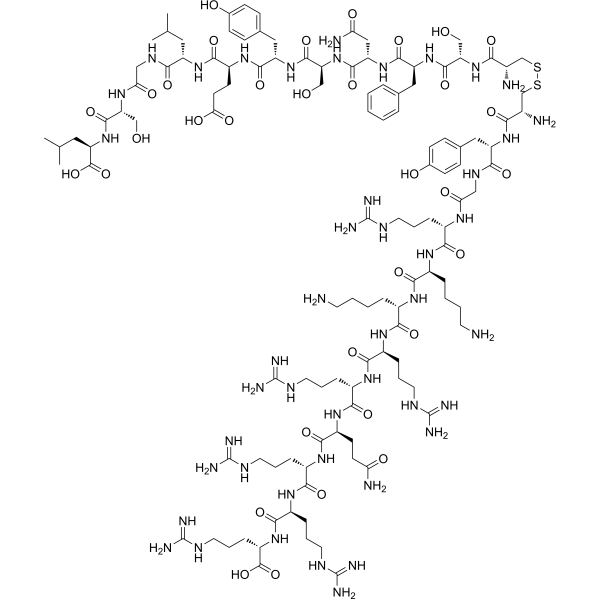
-
- HY-106262B
-
|
KAI-9803 hydrochloride; BMS-875944 hydrochloride
|
PKC
|
Cardiovascular Disease
Inflammation/Immunology
|
|
Delcasertib (KAI-9803) hydrochloride is a potent and selective δ-protein kinase C (δPKC) inhibitor. Delcasertib (KAI-9803) hydrochloride could ameliorate injury associated with ischemia and reperfusion in animal models of acute myocardial infarction (MI) .
|
-
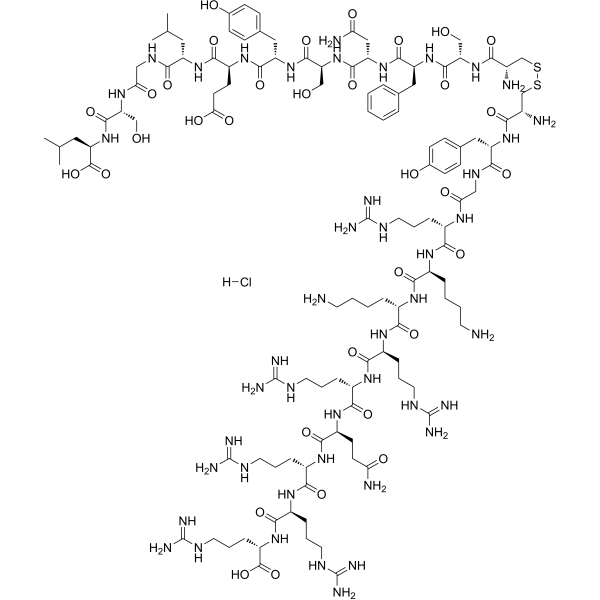
-
- HY-10915
-
|
|
Adenosine Receptor
|
Cardiovascular Disease
|
|
LUF6096, a potent allosteric enhancer of the adenosine A3 receptor, is able to allosterically enhance agonist binding. LUF6096 shows low orthosteric affinity for any of the adenosine receptors. LUF6096 shows protective effects in myocardial ischemia/reperfusion injury .
|
-
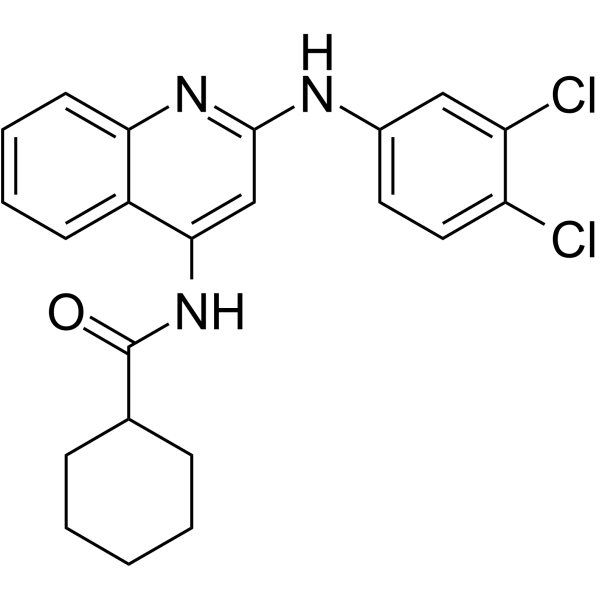
-
- HY-149586
-
|
|
Reactive Oxygen Species
|
Others
|
|
ROS-IN-2 (compound 85) is a seco-lupane triterpenoid derivative. ROS-IN-2 blocks ROS production and protects mitochondria from damage by inhibiting excessive production of oxidative stressors. ROS-IN-2 can be used for myocardial ischemia/reperfusion (MI/R) injury research .
|
-
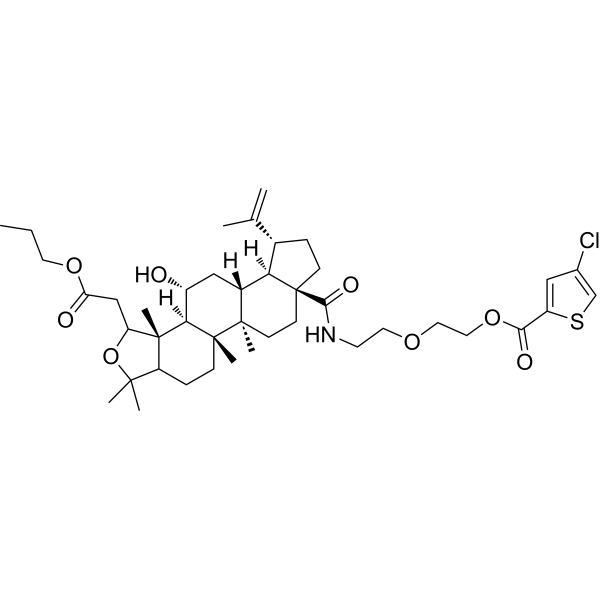
-
- HY-P0125B
-
|
MTP-131 triacetate; RX-31 triacetate; SS-31 triacetate
|
Mitochondrial Metabolism
|
Cardiovascular Disease
Neurological Disease
Inflammation/Immunology
|
|
Elamipretide triacetate (MTP-131 triacetate; RX-31 triacetate; SS-31 triacetate) is Elamipretide triacetate form of Elamipretide (HY-P0125). Elamipretide triacetate is a mitochondria-targeting peptide, which ameliorates myocardial infarction, improves the renal function and protects neurons form inflammatory and oxidative stress injury .
|
-
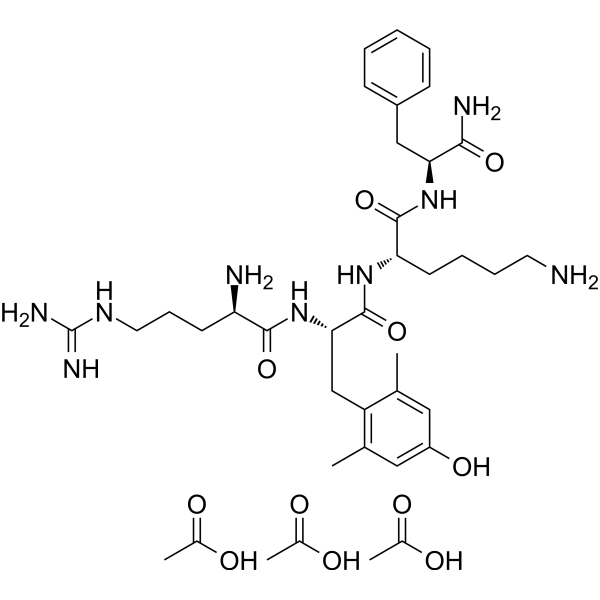
-
- HY-P0125A
-
-
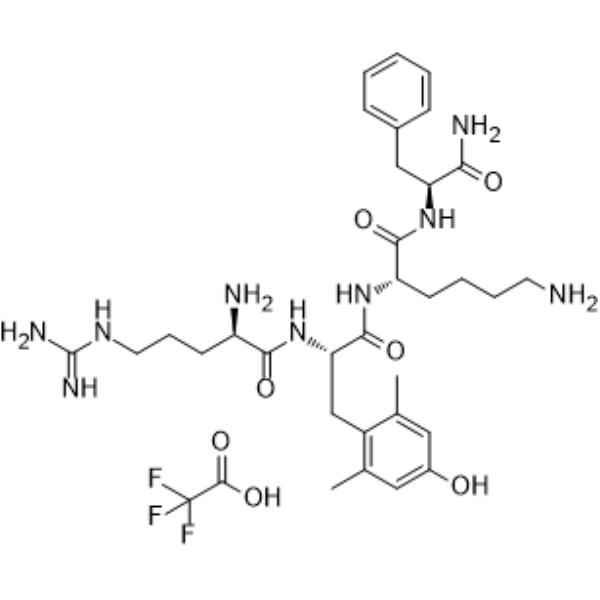
-
- HY-103445
-
|
|
Elastase
|
Cardiovascular Disease
|
|
SSR69071 is a potent, orally active and selective inhibitor of neutrophil elastase. SSR69071 reduces myocardial infarct size following ischemia-reperfusion injury . SSR69071 displays a higher affinity for human elastase (Ki=0.0168 nM) than for rat (Ki=3 nM), mouse (Ki=1.8 nM), and rabbit (Ki= 58 nM) elastases .
|
-
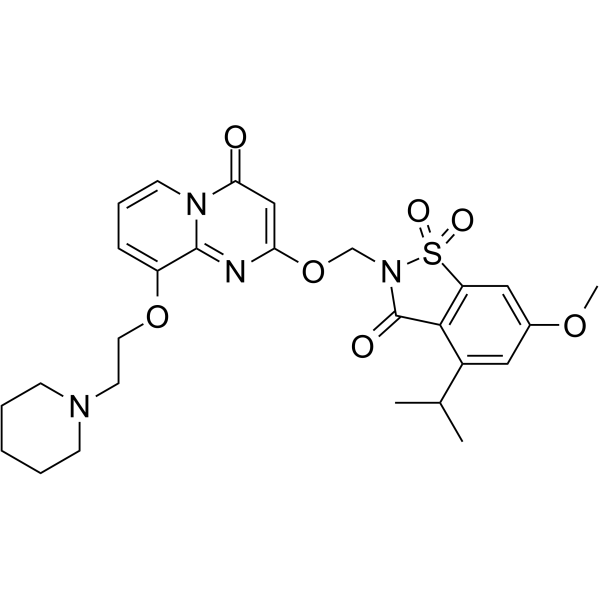
-
- HY-B1409
-
|
ISDN
|
NO Synthase
|
Cardiovascular Disease
|
|
Isosorbide dinitrate (ISDN) is an NO donor that prevents LV remodeling and degradation of cardiac function following myocardial infarction (MI) .
|
-
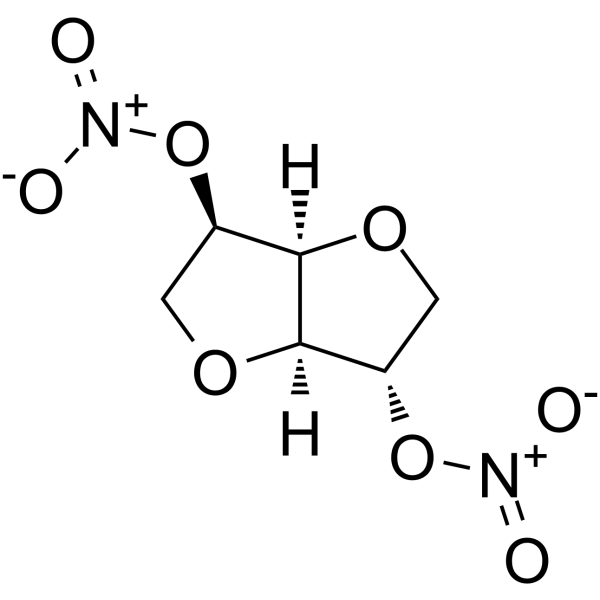
-
- HY-107571
-
|
|
Acyltransferase
|
Cardiovascular Disease
Metabolic Disease
|
|
VULM 1457 is a potent inhibitor of cholesterol acyltransferase (acyl-CoA). VULM1457 significantly reduces production and secretion of adrenomedullin (AM) and down-regulates AM receptors on human hepatoblastic cells. VULM 1457 has remarkable hypolipidaemic activity and improves the overall myocardial ischaemia-reperfusion injury outcomes. VULM 1457 has the potential for the research of diabetes mellitus and hypercholesterolaemia .
|
-
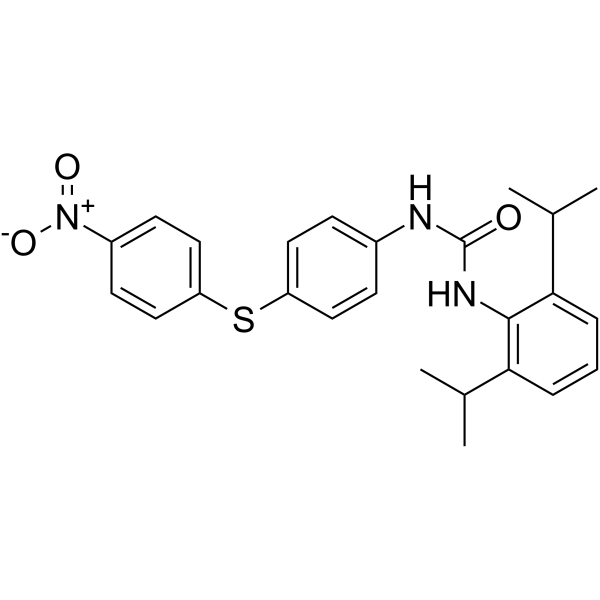
-
- HY-18100A
-
|
|
Sigma Receptor
Akt
NO Synthase
|
Cardiovascular Disease
Neurological Disease
|
|
PRE-084 hydrochloride is a highly selective σ1 receptor (S1R) agonist, with an IC50 of 44 nM. PRE-084 hydrochloride exhibits good neuroprotective effects, can improve motor function and motor neuron survival in mice. PRE-084 hydrochloride also can ameliorate myocardial ischemia-reperfusion injury in rats by activating the Akt-eNOS pathway .
|
-
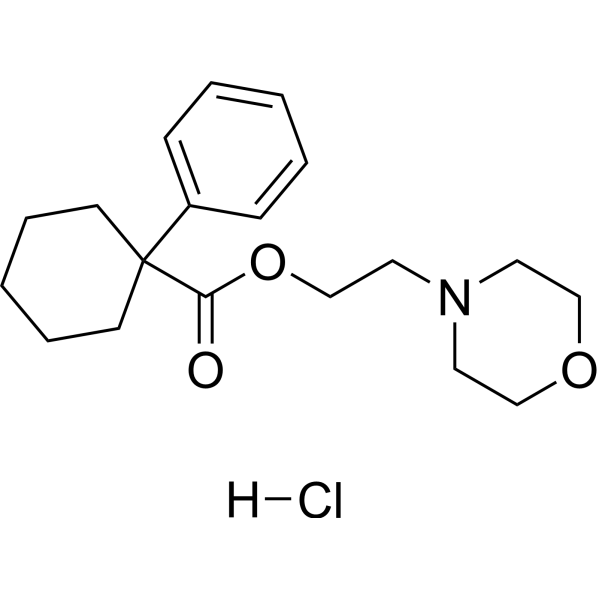
-
- HY-18100
-
|
|
Sigma Receptor
Akt
NO Synthase
|
Cardiovascular Disease
Neurological Disease
|
|
PRE-084 is a highly selective σ1 receptor (S1R) agonist, with an IC50 of 44 nM. PRE-084 exhibits good neuroprotective effects, can improve motor function and motor neuron survival in mice. PRE-084 also can ameliorate myocardial ischemia-reperfusion injury in rats by activating the Akt-eNOS pathway .
|
-
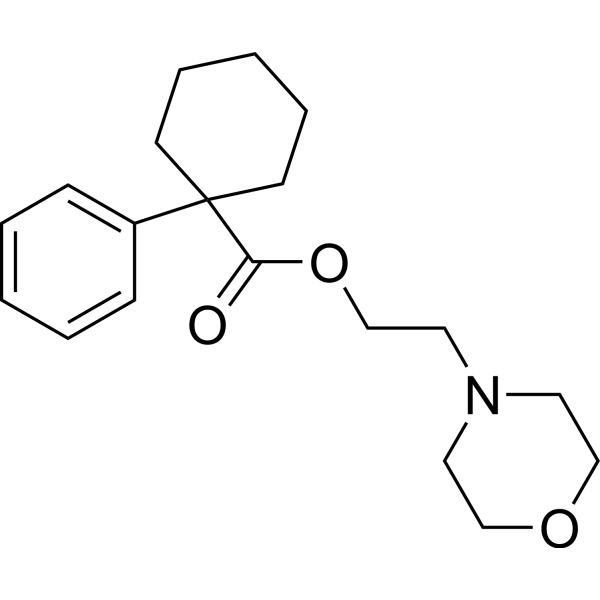
-
- HY-126124
-
AP39
2 Publications Verification
|
Others
|
Cardiovascular Disease
Neurological Disease
|
|
AP39 is a triphenylphosphonium derivatised anethole dithiolethione and mitochondria-targeting hydrogen sulfide (H2S) donor. AP39 increases intracellular H2S levels. AP39 exerts cytoprotective effects and maintains mitochondrial DNA integrity under oxidative stress conditions. AP39 protects against myocardial reperfusion injury in mice model and has the potential for Alzheimer's disease research .
|
-
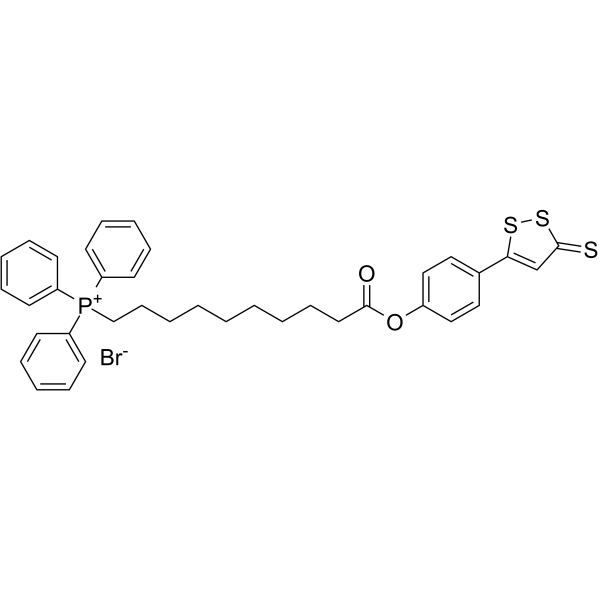
-
- HY-14994
-
|
|
Protease Activated Receptor (PAR)
Apoptosis
|
Cardiovascular Disease
|
|
SCH79797 dihydrochloride is a highly potent, selective nonpeptide protease activated receptor 1 (PAR1) antagonist. SCH79797 dihydrochloride inhibits binding of a high-affinity thrombin receptor-activating peptide to PAR1 with an IC50 of 70 nM and a Ki of 35 nM. SCH79797 dihydrochloride inhibits thrombin-induced platelet aggregation with an IC50 of 3 μM. SCH79797 dihydrochloride has antiproliferative and pro-apoptotic effects, and limits myocardial ischemia/reperfusion injury in rat hearts. SCH79797 dihydrochloride also potently prevents PAR1 activation in vascular smooth muscle cells, endothelial cells, and astrocytes .
|
-
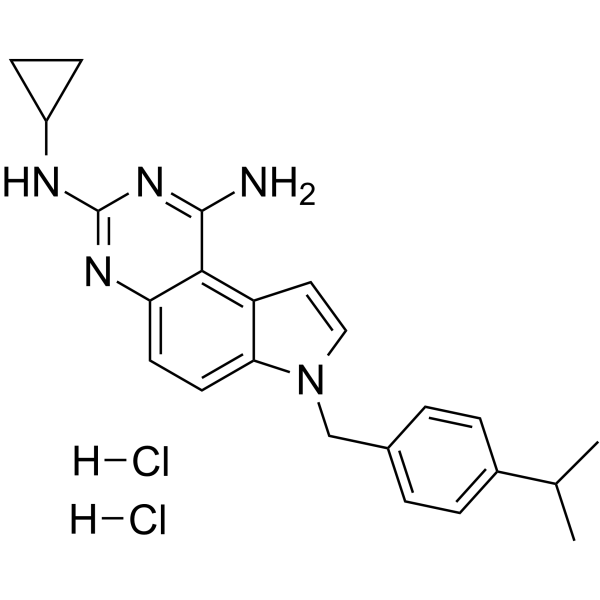
-
- HY-14993
-
|
|
Protease Activated Receptor (PAR)
Apoptosis
|
Cardiovascular Disease
|
|
SCH79797 is a highly potent, selective nonpeptide protease activated receptor 1 (PAR1) antagonist. SCH79797 inhibits binding of a high-affinity thrombin receptor-activating peptide to PAR1 with an IC50 of 70 nM and a Ki of 35 nM. SCH79797 inhibits thrombin-induced platelet aggregation with an IC50 of 3 μM. SCH79797 has antiproliferative and pro-apoptotic effects, and limits myocardial ischemia/reperfusion injury in rat hearts. SCH79797 also potently prevents PAR1 activation in vascular smooth muscle cells, endothelial cells, and astrocytes .
|
-
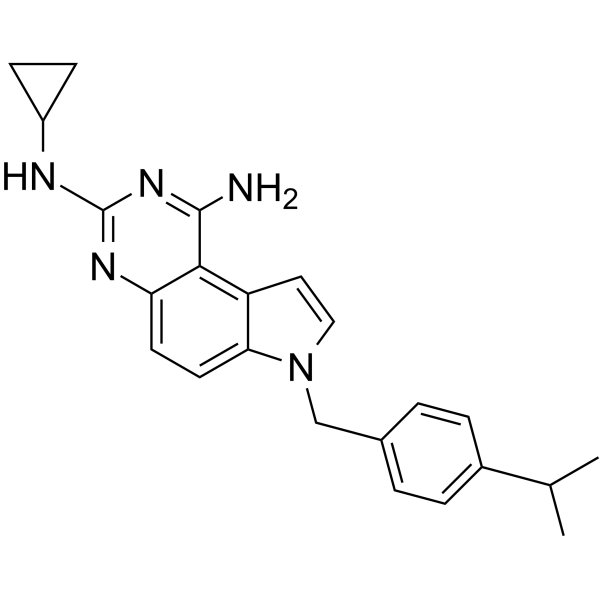
-
- HY-155517
-
|
|
NOD-like Receptor (NLR)
Pyroptosis
|
Inflammation/Immunology
|
|
INF200 (compound 5) is a sulfonylurea-based inhibitor of NLRP3 and NLRP3-mediated pyroptosis. INF200 has beneficial cardiometabolic effects in rat model of high-fat diet (HFD)-induced metaflammation,and shows anti-inflammatory activity to (10 μM) decreases IL-1β release in human macrophages. INF200 improves glucose and lipid profiles,and attenuates systemic inflammation and biomarkers of cardiac dysfunction (particularly BNP). INF200 also improves myocardial damage-dependent ischemia/reperfusion injury (IRI) in hemodynamic evaluation .
|
-
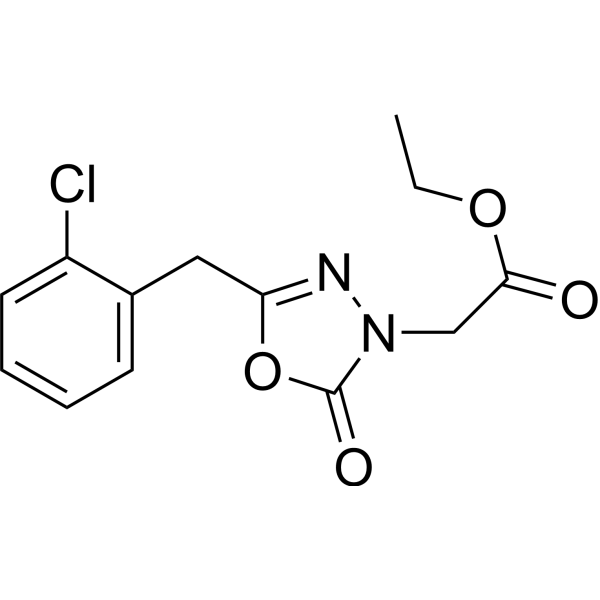
-
- HY-P5888
-
|
Myr‐PKCɛ-
|
PKC
|
Inflammation/Immunology
|
|
PKCε inhibitor peptide,myristoylated (Myr‐PKC?-) is a cell permeable myristic acid conjugated PKC? peptide inhibitor that attenuates NO release in cultured human umbilical vein endothelial cells (HUVECs) .
|
-
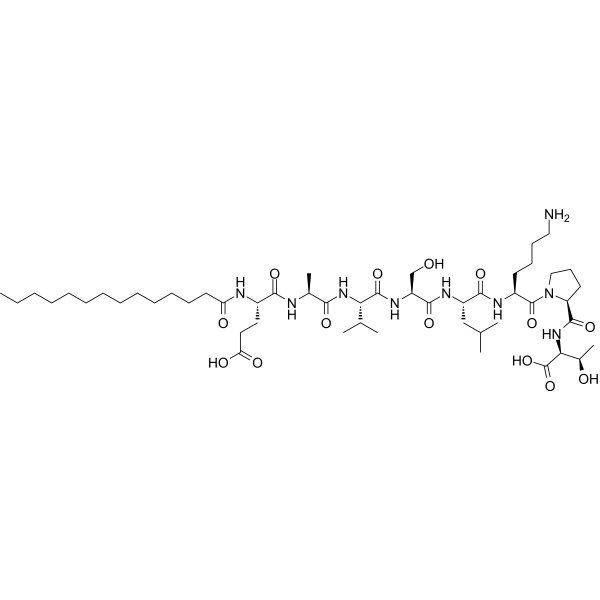
-
- HY-103171
-
|
|
Adenosine Receptor
|
Cardiovascular Disease
Inflammation/Immunology
|
|
BAY 60-6583 is a potent and high-affinity agonist of adenosine A2B receptor (EC50 = 3 nM) over A1, A2A, and A3 receptors. BAY 60-6583 binds to mouse, rabbit, and dog A2BAR with Ki values of 750 nM, 340 nM and 330 nM, respectively. BAY 60-6583 has a cardioprotective effect in a myocardial ischemia model .
|
-
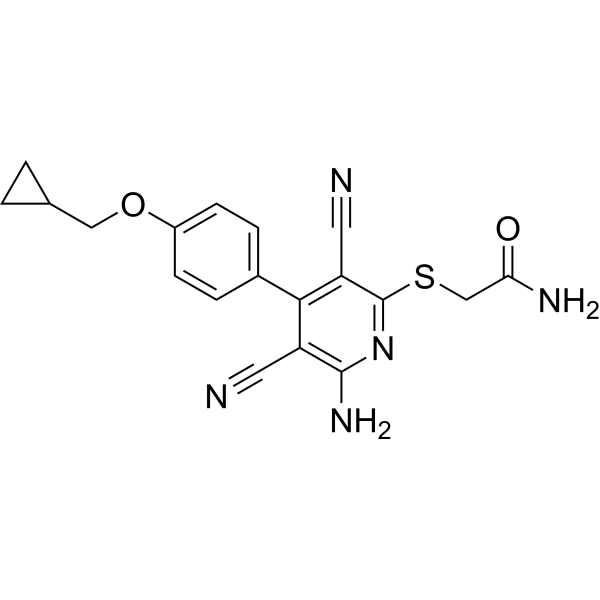
-
- HY-13524
-
-
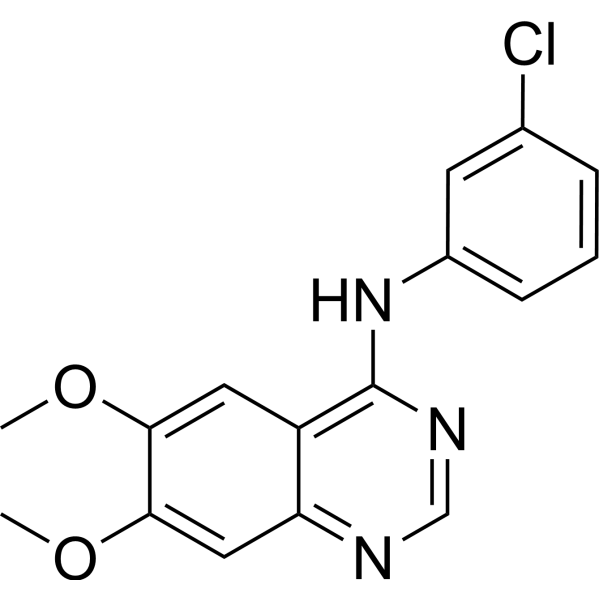
-
- HY-P1556
-
|
|
PKG
|
Cardiovascular Disease
|
|
Vasonatrin Peptide (VNP) is a chimera of atrial natriuretic peptide (ANP) and C-type natriuretic peptide (CNP). Vasonatrin peptide possesses the venodilating actions of CNP, the natriuretic actions of ANP, and unique arterial vasodilating actions not associated with either ANP or CNP. Vasonatrin Peptide protects the diabetic heart against ischemia-reperfusion injury by inhibiting ER stress via the cGMP-PKG signaling pathway .
|
-
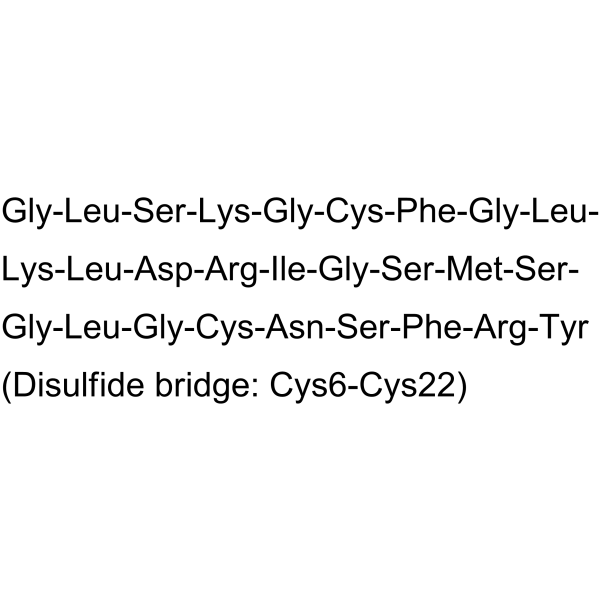
-
- HY-117970
-
|
|
MMP
|
Cardiovascular Disease
|
|
MMPI-1154 is a promising novel cardio-cytoprotective imidazole-carboxylic acid (ICA) MMP-2 inhibitor(IC50=6.6 μM) and can be used for the study of acute myocardial infarction. MMPI-1154 also inhibits the activity of MMP-13, MMP-1 and MMP-9 with IC50s of 1.8 μM,10 μM, and 13 μM, respectively .
|
-
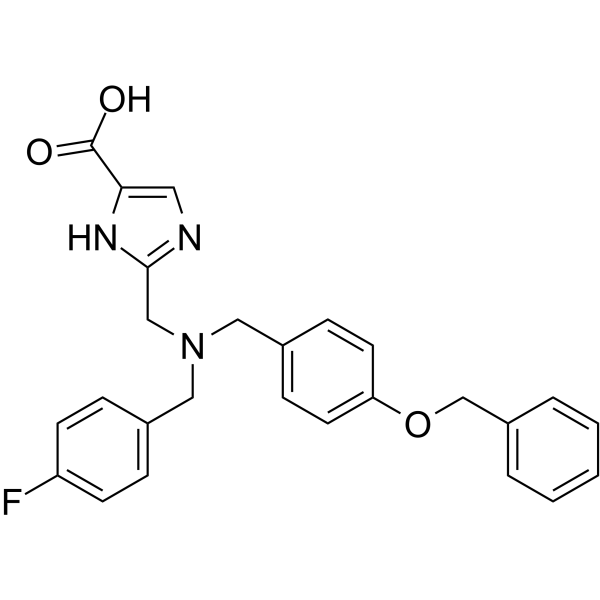
-
- HY-13524A
-
-
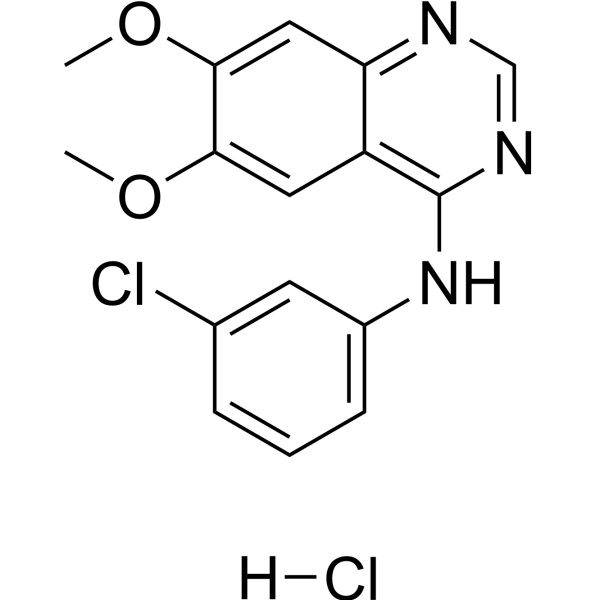
-
- HY-P1556A
-
|
|
PKG
|
Metabolic Disease
|
|
Vasonatrin Peptide (VNP) TFA is a chimera of atrial natriuretic peptide (ANP) and C-type natriuretic peptide (CNP). Vasonatrin peptide TFA possesses the venodilating actions of CNP, the natriuretic actions of ANP, and unique arterial vasodilating actions not associated with either ANP or CNP. Vasonatrin Peptide TFA protects the diabetic heart against ischemia-reperfusion injury by inhibiting ER stress via the cGMP-PKG signaling pathway .
|
-

-
- HY-P5877
-
|
|
PKC
|
Inflammation/Immunology
|
|
?PKC(85–92),Myristoylated is a cell permeable myristic acid conjugated PKC? peptide activator that enhances NO release in cultured human umbilical vein endothelial cells (HUVECs) .
|
-
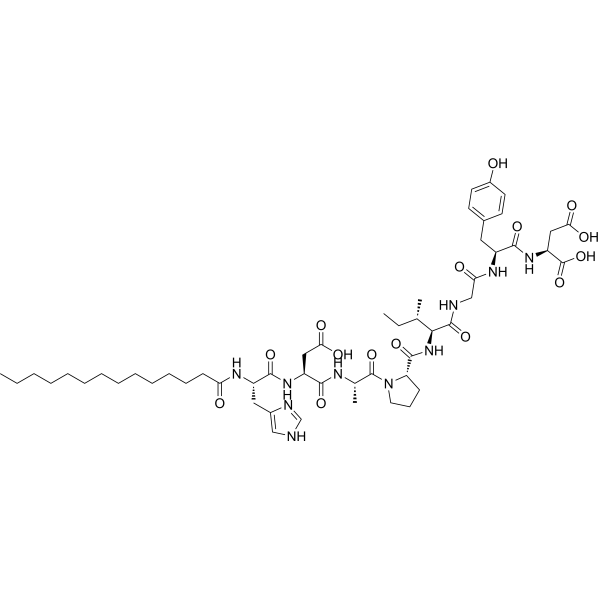
-
- HY-N7627
-
|
|
Others
|
Cardiovascular Disease
Inflammation/Immunology
|
|
Regaloside C is a glycerol glucoside isolated from the bulbs of Lilium genus with anti-inflammatory activities. Regaloside C has cardiomyocyte protective activity by protecting the mitochondria in H2O2-induced heart H9C2 cells .
|
-
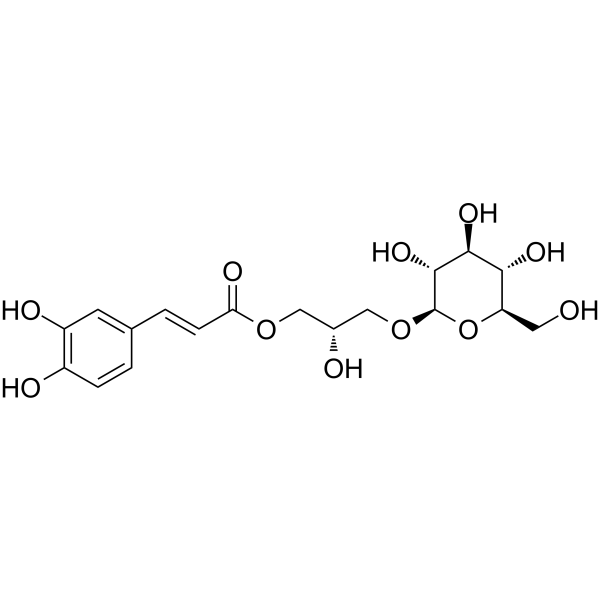
-
- HY-15449
-
-
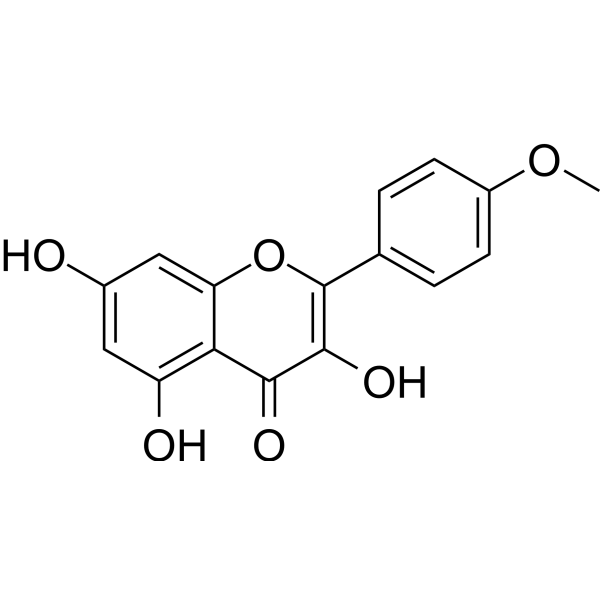
-
- HY-160637
-
-
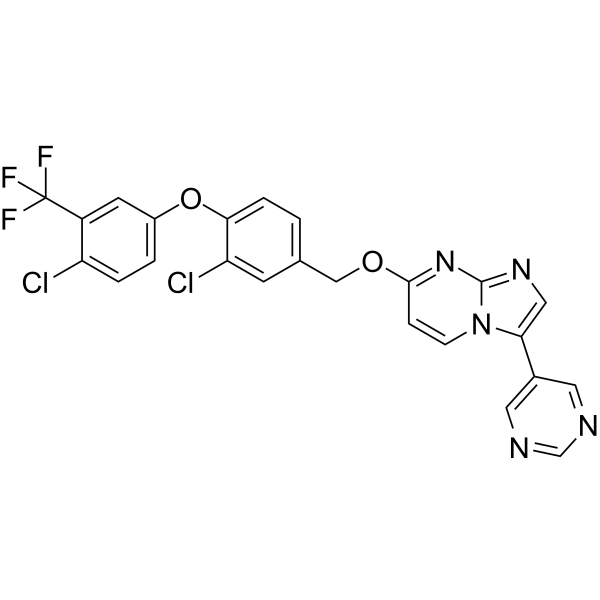
| Cat. No. |
Product Name |
Type |
-
- HY-E70008
-
|
|
Biochemical Assay Reagents
|
|
Lumbokinase capsules attenuates myocardial ischemia-reperfusion (I-R) injury through the activation of Sirt1 signaling, and thus enhances autophagic flux and reduces I-R-induced oxidative damage, inflammation and apoptosis .
|
| Cat. No. |
Product Name |
Target |
Research Area |
-
- HY-106262B
-
|
KAI-9803 hydrochloride; BMS-875944 hydrochloride
|
PKC
|
Cardiovascular Disease
Inflammation/Immunology
|
|
Delcasertib (KAI-9803) hydrochloride is a potent and selective δ-protein kinase C (δPKC) inhibitor. Delcasertib (KAI-9803) hydrochloride could ameliorate injury associated with ischemia and reperfusion in animal models of acute myocardial infarction (MI) .
|
-
- HY-P0125B
-
|
MTP-131 triacetate; RX-31 triacetate; SS-31 triacetate
|
Mitochondrial Metabolism
|
Cardiovascular Disease
Neurological Disease
Inflammation/Immunology
|
|
Elamipretide triacetate (MTP-131 triacetate; RX-31 triacetate; SS-31 triacetate) is Elamipretide triacetate form of Elamipretide (HY-P0125). Elamipretide triacetate is a mitochondria-targeting peptide, which ameliorates myocardial infarction, improves the renal function and protects neurons form inflammatory and oxidative stress injury .
|
-
- HY-P0125
-
-
- HY-106262
-
|
KAI-9803; BMS-875944
|
PKC
|
Cardiovascular Disease
Inflammation/Immunology
|
|
Delcasertib (KAI-9803) is a potent and selective δ-protein kinase C (δPKC) inhibitor. Delcasertib (KAI-9803) could ameliorate injury associated with ischemia and reperfusion in animal models of acute myocardial infarction (MI) .
|
-
- HY-P0125A
-
-
- HY-P5888
-
|
Myr‐PKCɛ-
|
PKC
|
Inflammation/Immunology
|
|
PKCε inhibitor peptide,myristoylated (Myr‐PKC?-) is a cell permeable myristic acid conjugated PKC? peptide inhibitor that attenuates NO release in cultured human umbilical vein endothelial cells (HUVECs) .
|
-
- HY-P1556
-
|
|
PKG
|
Cardiovascular Disease
|
|
Vasonatrin Peptide (VNP) is a chimera of atrial natriuretic peptide (ANP) and C-type natriuretic peptide (CNP). Vasonatrin peptide possesses the venodilating actions of CNP, the natriuretic actions of ANP, and unique arterial vasodilating actions not associated with either ANP or CNP. Vasonatrin Peptide protects the diabetic heart against ischemia-reperfusion injury by inhibiting ER stress via the cGMP-PKG signaling pathway .
|
-
- HY-P1556A
-
|
|
PKG
|
Metabolic Disease
|
|
Vasonatrin Peptide (VNP) TFA is a chimera of atrial natriuretic peptide (ANP) and C-type natriuretic peptide (CNP). Vasonatrin peptide TFA possesses the venodilating actions of CNP, the natriuretic actions of ANP, and unique arterial vasodilating actions not associated with either ANP or CNP. Vasonatrin Peptide TFA protects the diabetic heart against ischemia-reperfusion injury by inhibiting ER stress via the cGMP-PKG signaling pathway .
|
-
- HY-P5877
-
|
|
PKC
|
Inflammation/Immunology
|
|
?PKC(85–92),Myristoylated is a cell permeable myristic acid conjugated PKC? peptide activator that enhances NO release in cultured human umbilical vein endothelial cells (HUVECs) .
|
| Cat. No. |
Product Name |
Target |
Research Area |
| Cat. No. |
Product Name |
Category |
Target |
Chemical Structure |
Your information is safe with us. * Required Fields.
Inquiry Information
- Product Name:
- Cat. No.:
- Quantity:
- MCE Japan Authorized Agent:

















































